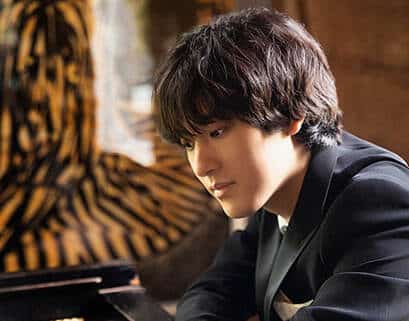Leonard Bernstein’s greatest flop is redeemed in Paris
NewsShirley Apthorp reviews a radical new production of A Quiet Place at the Opéra National de Paris, Palais Garnier
Astonishingly, this is the first time that Leonard Bernstein’s final opera has been performed in France. Or perhaps not so astonishingly, since A Quiet Place had a difficult birth, and has never really found its way into the repertoire.
32 years after his ebullient +Trouble in Tahiti+, Bernstein penned a sequel – the same family two decades later, fractured and disjunct, trying to come to terms with the probable suicide of the mother, Dinah. She had divorced her husband, Sam; her children, Junior and Dede, are now adults, caught in their own awkward love triangle with the bisexual François.
Critics hammered Bernstein’s 1983 premiere. He revised it again, and then again; it remained problematic. In 2013, Garth Edwin Sunderland put together a new version, a deft compilation and re-orchestration of Bernstein’s various drafts. It is this which the Paris Opera performs.
And… it works. Kent Nagano conducts with the patient clarity of a kindergarten teacher reading a foreign language, spelling out each detail; Covid has hit the Paris Opera hard, and it is likely that each performance brings a new batch of unfamiliar orchestral players. Nagano takes no chances, making absolutely sure everyone is with him from the word go.
We hear a piece that frames Bernstein’s new opera with echoes of earlier works, not only Trouble in Tahiti, but also Candide and even his televised Young People’s Concerts; Mendelssohn’s violin concerto makes a cameo appearance in the score during a family meeting. This is not as instantly loveable and catchy as +Trouble in Tahiti+, but it isn’t meant to be. Bernstein weaves in and out of the jazzy, the bittersweet, the atonal, never entirely settling on any of them.
Much of the evening’s success is owed to Krzysztof Warlikowski’s extraordinarily detailed production. Dysfunctional families are Warlikowsi’s bread and butter, and Bernstein’s motley crew falls straight into his standard frame. Dinah, whom we learn was drunk at the wheel of the car crash that killed her, floats through the stage as a tipsy ghost, sad and bemused. Junior, whom we are told is not only gay but also deranged and a draft-dodger, rocks up at the family funeral wearing a cowboy costume from his childhood, and performs a striptease by the coffin. François, now married to Dede, was once his lover. When Junior confesses to the sexual abuse of his little sister, François dismisses it as a sick fantasy. When Junior clutches at him, François moves towards Dede. Initially charmed, she seems to realise that her brother is her husband’s real love. It is a lonely conclusion, even as her shattered family finds a tenuous new togetherness.
Warlikowski makes genuine, compelling theatre of the work, just as profoundly human as it is intensely musical. He finds Mozartian empathy for every character, from Sam’s crippling remorse to François’ desperate need to please. Małgorzata Szczęśniak’s evocative sets recall the stifling functionality of a 1980s crematorium, and a family home furnished two decades earlier, the repressive values of the early 1960s frozen in its matching chairs and patterned wallpaper. Kamil Polak’s video projections are sparse and to the point.
And the cast is excellent. Gordon Bintner brings depth and nuance to the troubled character of Junior, here striking a delicate balance in which his sexuality and mental illness are both merely attributes of a complex personality. He is not gay because he is crazy, or crazy because he is gay; he is simply a sensitive young man battling to survive in a hostile environment. Both he and Régis Mengus (corrected: Russell Braun) as the emotionally stunted Sam find moments of incredible tenderness in their upper registers for their characters, giving us warmth and vulnerability in sound. As Dede, Claudia Boyle also sings with an incredible breadth of emotional colour, and Frédéric Antoun is both dashing and ambiguous as François. The many smaller roles are all superbly filled.
Like the best funerals, this production gives us moments of wry hilarity as well as interludes of deep sorrow; at times introspective, at others extravagant, it takes us to a wide range of emotionally difficult places without ever lapsing into either polemics or kitsch. It is rare to meet a formerly unloved work of music theatre that is treated with such immense care, affection and imagination. However far from Paris’s lavish Garnier opera house you live, this is worth the journey. Opera seldom gets better than this.
+++






That is good news, as the brilliance of Candide in it’s original version, was distorted, dissolved and removed by all the subsequent revisions. I have seen each production, and the best one of all was Minnesota Opera’s back in the 1970s. And while Trouble in Tahiti came in for a lot of criticisms, the production I saw televised or recorded several years ago, captured the tone just right and it was wonderful. Bernstein’s music, like that of many masters, is taking time to reveal its power and trueness. His Serenade on Plato’s Symposium is a masterpiece. If I heard his symphony, The Age of Anxiety now, I think I would find it the same. In it’s time, it seemed too close to Mahler in influence, now, that would not matter.
His biggest flop was surely 1600 Pennsylvania Ave. Unlike Quiet Place never even had a proper recording
“Leonard Bernstein’s greatest flop…” More so than 1600 Pennsylvania Avenue?
“LEONARD BERNSTEIN’S GREATEST FLOP”
Clicked on this expecting to read about a performance of his Mass.
I doubt it could be considered his greatest “flop”. That was his Mass, probably.
I’ve performed the Mass twice. I loved the experience both times, and the audience did as well. I fervently hope that at some point I compose a “flop” on the order of Bernstein’s “Mass”. But I am not optimistic.
I would count a performance of “Mass” to be one of the highlights of my career… seems unlikely to happen, unfortunately.
This was not his biggest flop. 1600 Pennsylvania Avenue was his biggest flop.
You are correct! Trouble is, it was such a flop and came so late in his career, it has been virtually erased from memory. Sort of canceled before canceling even existed.
I was at the original production at Washington Opera where it was done in tandem with Trouble in Tahiti I remember being underwhelmed by both! My most vivid memory is trying to sell a couple of spare tickets outside the opera house when a stretched limo pulled up and Lenny jumpy out. I said “ Lennie do you want a ticket for the show?”! He said “ Naw I’ve seen it”!
A brilliant work. I remember seeing it in Bielefeld (in German) in the late 1980s.
Correction:
Russell Braun is singing the role of Sam, husband of Dinah, and not Regis Mengus (who is singing Bill, brother of Dinah)
Bernstein’s non-Broadway stage works contain some fine music, but are dramatically overwrought, even silly. When A QUIET PLACE was here in Washington, there was more than a little snickering heard in the audience.
The night before the Kennedy Center’s official opening, I attended the dress rehearsal of MASS. Many Washington area musicians and chorus members were present, and a general consensus was that too often Bernstein’s music stooped to the banality of the text he had set.
Perhaps of interest: In the original Houston production of A QUIET PLACE, the small role of “Bill” was sung by Theodor Uppman — the first Billy Budd.
I performed a number of his works in his centennial year–all three symphonies, the Mass, the Serenade with solo violin, Dybbuck, Chichester Psalms, the On the Waterfront Suite…probably forgot a few. I came away from it with the sense that for all his fame, Bernstein might be among the most underrated composers in the history of classical music. His craft is extraordinary, and he consistently touches the heart. He was fearless and exuberant, and this was a poor fit for our cynical age.
Hello Mr Lebrecht. Thank you for the review of “A quiet place” in Paris. While Regis Mengus is a wonderful baritone appearing as “Bill”, it is though Russell Braun taking on the role of “Sam”. With kind regards. Russell Braun.
Thanks. We’ll adjust that.
Great news. And I guess it probably had to be a French house that fixed it up; Bernstein’s not exactly an unsung prophet in his own country but some time and distance probably helped.
I heard MTT conduct the LSO in the suite from “A Quiet Place” about 20 years ago, and thought it was a terrific score.
I too attended the premier at the Kennedy Center with Lenny in attendance. Although at the time my honest opinion was “meh”, it was nonetheless impossible to simply dismiss it as second rate or forgettable. I am glad to know it is finally coming into its own, and hope it will finally begin to be appreciated for the complex, intelligent work it is.